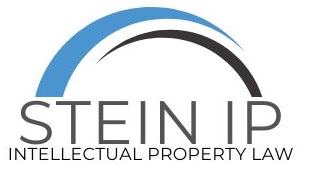- HOME
- > Blog Main Page
- > Copyright
- > Digital Millennium Copyright Act
Digital Millennium Copyright Act
 By Skylar Reel
By Skylar Reel
The Digital Millennium Copyright Act (“DMCA”) was signed into law in 1998, yet the technological advances that have occurred in the past two decades since have proven the need for a reform bill to address the new digital challenges of today. The United States’ Senate IP Subcommittee held their first of eight hearings this week to discuss potential actions to be taken towards modernizing the DMCA.
The subcommittee plans to issue a draft reform bill by December 2020 for stakeholder input. They also plan to address section 512 and section 1201 of the DMCA, two controversial provisions, which they hope will assist them in solving the current rising digital challenges while satisfying the industries involved.
Section 512 of the DMCA addresses the limitations on liability for copyright infringement by online service providers such as Facebook and Google. These limitations include the transfer of information by any form of digital communication, system caching, infringing material on websites by the user’s direction, and information location tools. These are all detailed in the DMCA in which section 512 has been thoroughly discussed at this week’s hearing for needing reforms.
A panel of professors argued that section 512 fails to fulfill its purpose because there are no direct responsibilities for parties involved. The panel argued that section 512 fails to encourage service providers to take future preventative action in that it simply forces a service provider to recognize and remove infringing materials at the immediate instance of awareness.
If reforms for section 512 were to be enacted, larger providers like Google and Facebook would be the main focuses, but that does not simply cover every area of the digital realm. The panelists addressed that it may be in the Senate’s best interests if reforms focused more on ensuring all online service providers are constantly regulating their sites and content to prevent infringing materials from being available.
Also, if infringing materials are found and removed, these providers would ensure that no copies or imitations of the infringing materials may be found elsewhere (McDermott). The panelists also acknowledged that if section 512 was reformed, it should be drafted in more general terms.
Another prominent topic of the hearing was section 1201 of the DMCA, which addresses the required protection for overcoming technological measures to ensure copyright owners protect their work. These technological measures are separated into two categories: “measures that prevent unauthorized access to a copyrighted work and measures that prevent unauthorized copying of a copyrighted work” (United States. Congress.).
The panel of professors addressed the problems that have arisen regarding anti-circumvention measures, such as diabetes patients unable to oversee the output of their monitors and early digital developers who seek to do more than limit themselves to copyrighted works.
The panelists suggested that a solution to the rising problems of section 1201 would be a new shifted “focus on the use of antitrust in the copyright and telecom industries” (McDermott). They also proposed that an infringement nexus be included in a newly drafted 1201.
It will be interesting to see how things develop regarding the DMCA in 2020.
References:
United States. Congress. Senate. Committee on the Judiciary. The Digital Millennium Copyright Act Of 1998 : Report Together with Additional Views [to Accompany S. 2037). [Washington, D.C.?] :[U.S. G.P.O.,], 1998.
McDermott, Ellen. “Senate IP Subcommittee Kicks Off Year-Long Review of Digital Millennium Copyright Act.” IPWatchdog.com | Patents & Patent Law, 13 Feb. 2020, www.ipwatchdog.com/2020/02/13/senate-ip-subcommittee-kicks-off-year-long-review-digital-millennium-copyright-act/id=118866/

TAGS:
RECENT POSTS
